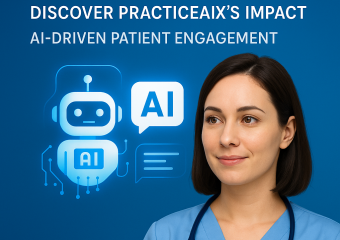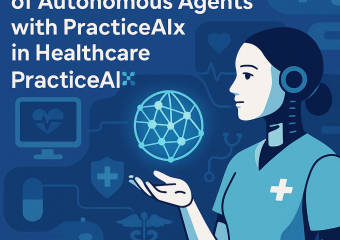How AI Is Transforming Patient Care: A Guide for Clinics and Providers Nationwide
Artificial intelligence (AI) is revolutionizing numerous sectors, and healthcare is among the most profoundly impacted. How AI is transforming patient care has become a critical question for clinics and providers nationwide seeking to improve outcomes, streamline operations, and deliver personalized treatment. By integrating AI-driven technologies into everyday clinical practice, healthcare professionals are now better equipped to tackle complex health challenges and enhance the patient experience.
Enhancing Diagnostic Accuracy with AI
One of the most significant ways AI is changing patient care is through enhanced diagnostic accuracy. Traditional diagnostic methods, while effective, often rely heavily on the expertise and experience of individual clinicians. AI algorithms, trained on vast datasets including medical imaging, genetic information, and patient histories, can identify patterns that may be missed by the human eye. For example, AI-powered imaging tools can detect early signs of diseases such as cancer or diabetic retinopathy with higher sensitivity and specificity than standard screening techniques.
Clinics implementing AI-based diagnostic systems report faster turnaround times and fewer diagnostic errors, which in turn accelerates treatment planning and improves patient prognosis. Additionally, AI can aid in interpreting complex genetic information, helping providers tailor interventions to each patient’s unique biological profile.
Streamlining Administrative Tasks to Maximize Patient Interaction
Administrative burdens frequently limit the time healthcare providers can spend with patients. AI-driven automation is transforming patient care by reducing tedious paperwork and operational inefficiencies. Tasks such as appointment scheduling, billing, insurance verification, and medical record management can now be handled swiftly through AI-powered platforms.
This streamlining allows providers to focus more on direct patient care and fosters meaningful communication, which is essential for accurate diagnosis and effective treatment. Clinics nationwide adopting these technologies experience reduced administrative overhead and an improved workflow, creating a more patient-centric environment.
Personalized Treatment Plans Through Predictive Analytics
AI excels in analyzing complex datasets to generate predictive insights, which is invaluable for personalizing patient care. By leveraging data from electronic health records (EHRs), wearable devices, and even social determinants of health, AI can forecast disease progression or potential complications. Providers can use these predictions to develop customized treatment plans that align closely with a patient’s risk factors and lifestyle.
For chronic conditions such as diabetes, heart disease, and asthma, personalized management plans driven by AI analytics have led to better adherence, fewer hospital admissions, and improved quality of life. This individualized approach marks a substantial improvement from the traditional one-size-fits-all model in healthcare.
Supporting Clinical Decision-Making with AI Assistance
Clinicians frequently face complex decisions that require synthesizing vast amounts of information in limited time. AI-powered decision support systems are emerging as indispensable tools in patient care by offering evidence-based recommendations and real-time alerts.
For example, AI can help identify potential drug interactions, recommend the most effective therapies based on current research, and flag unusual vital signs that may warrant immediate attention. This technology does not replace the provider but rather enhances clinical judgment, leading to safer and more effective care delivery.
Improving Patient Engagement and Remote Monitoring
AI is also transforming patient care by enabling better patient engagement and remote monitoring capabilities. Virtual health assistants and chatbots provide 24/7 support, answering patient questions, reminding them about medication schedules, and offering lifestyle advice. These tools help patients take an active role in managing their health, which is critical for long-term wellness.
Moreover, AI-powered remote monitoring devices can continuously track vital signs and symptom changes. Such systems alert healthcare providers to potential issues before they escalate, allowing timely intervention without requiring frequent office visits. This approach is particularly beneficial for rural areas and populations with limited access to healthcare facilities.
Addressing Ethical Considerations and Challenges
While the benefits of AI in patient care are substantial, clinics and providers must also consider ethical implications and challenges. Ensuring data privacy and security is paramount, as patient information is highly sensitive. Providers should adopt AI solutions that comply with regulations such as HIPAA and prioritize patient consent.
Additionally, there is concern about algorithmic bias that may result from unrepresentative data sets. Clinics should work with AI developers to validate and monitor systems continually, guaranteeing fair and equitable care.
The Future of Patient Care Powered by AI
How AI is transforming patient care is just the beginning. As machine learning models become more sophisticated and integrate seamlessly with clinical workflows, we can expect even greater innovations. Clinics nationwide stand to benefit immensely by embracing AI technologies, from optimized diagnostics to more personalized, efficient, and compassionate care.
By investing in training, infrastructure, and ethical oversight, healthcare providers can ensure that AI serves as a powerful ally in their mission to improve patient outcomes and advance the future of medicine.
In conclusion, AI presents an unprecedented opportunity for clinics and providers to elevate patient care. From diagnostic advancements and administrative efficiency to personalized treatment and patient engagement, AI is reshaping how healthcare is practiced across the nation. Embracing this transformation with thoughtful implementation can lead to a healthier tomorrow for patients and providers alike.








